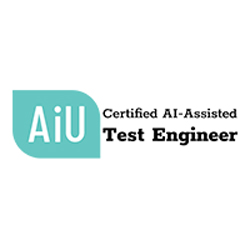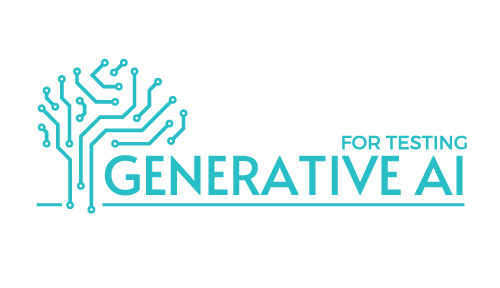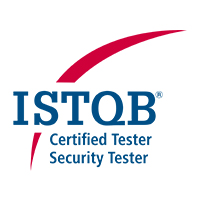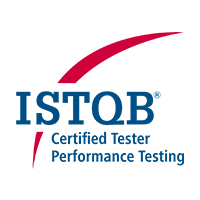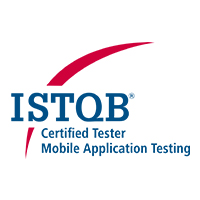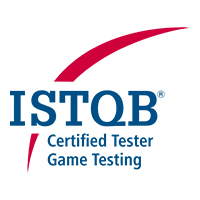iSAQB
Certified Professional for Software Architecture (CPSA)® Foundation Level
- 300 + Students Empowered
- 4.5/5 Best Selling Program
- Format: Instructor-Led online Program and self learn online program
- Start Date: Instructor-Led program on August 23-25, 2024.
Course overview:
The CPSA Foundation Level (CPSA‑F®) conveys the ability in a team to design and document an appropriate software architecture, to assure and evaluate quality, and to know the necessary tools, all that for properly described requirements and systems up to a medium size. Participants receive professional tools to successfully implement software architectures and optimally design modern systems.
Certification as CPSA‑F® is a valuable seal of approval for an internationally recognized training standard in software architecture and offers many advantages for professional development.
Major takeaways:
➜ How you can coordinate essential software architecture decisions with other project participants from the fields of requirements management, project management, testing, and development.
➜ How you can document and communicate software architectures based on architecture patterns and technical concepts.
➜ How you can independently carry out the essential steps in designing software architectures for small and medium-sized systems.
Course outline:
Basic Concepts of Software Architecture
- Discuss Definitions of Software Architecture
- Understand and Explain the Goals and Benefits of Software Architecture
- Understand Software Architecture as Part of the Software Lifecycle
- Understand Software Architects’ Tasks and Responsibilities
- Relate the Role of Software Architects to Other Stakeholders
- Can Explain the Correlation between Development Approaches and Software Architecture
- Differentiate between Short- and Long-Term Goals
- Distinguish Explicit Statements and Implicit Assumptions
- Responsibilities of Software Architects within the Greater Architectural Context
- Differentiate Types of IT Systems
- Challenges of Distributed Systems
Specification and Communication of Software Architectures
- Explain and Consider the Requirements of Technical Documentation
- Describe and Communicate Software Architectures
- Explain and Apply Notations/Models to Describe Software Architecture
- Explain and Use Architectural Views
- Explain and Apply Context View of Systems
- Document and Communicate Cross-Cutting Concepts
- Describe Interfaces
- Explain and Document Architectural Decisions
- Know Additional Resources and Tools for Documentation
Examples of Software Architectures
- Know the Relation between Requirements, Constraints, and Solutions
- Know the Rationale of a Solution’s Technical Implementation
Design and Development of Software Architectures
- Select and Use Approaches and Heuristics for Architecture Development
- Design Software Architectures
- Identify and Consider Factors Influencing Software Architecture
- Design and Implement Cross-Cutting Concepts
- Describe, Explain and Appropriately Apply Important Solution Patterns
- Explain and Use Design Principles
- Manage Dependencies between Building Blocks
- Achieve Quality Requirements with Appropriate Approaches and Techniques
- Design and Define Interfaces
- Know Fundamental Principles of Software Deployment
Software Architecture and Quality
- Discuss Quality Models and Quality Characteristics
- Clarify Quality Requirements for Software Architectures
- Qualitative Analysis of Software Architectures
- Quantitative Evaluation of Software Architectures
Testimonials:

The training session conducted for API and microservices Testing by verity software had an adept syllabus that is structured in easy and understandable format.
Srinivas, he was passionate about what he was teaching, and his session was full of captivating and the way he cleared the doubts was commendable.
The Syllabus covers all the basics of API and Microservices Automation Testing
China Sreekanth Karri, Test Specialist – Data, IBM

It was very useful training for me from a career perspective.
Dr. Srinivas has provided in-depth knowledge of both API and Web services.
Priyadarshan Samal, Freelancer

I must say Trainer is amazing! I am glad to enroll in this training. And thanks to you for organizing such an eminent scholar for this course.
Shubodaye Hiremath Gurunath
FAQ:
Can I take a CPSA‑F exam without a preparatory training course?
To prepare for the Foundation Level exam, participation in classroom or online training from an iSAQB® Accredited Training Provider is highly recommended. An accredited CPSA‑F® training course usually lasts three to four days, and covers all relevant topics of the exam.
However, it is also possible to take the CPSA‑F® exam without attending a Foundation Level training course. We recommend the following literature for independent exam preparation:
- Software Architecture Foundation by Gernot Starke and Alexander Lorz; Van Haren Publishing, 1st Edition, May 2021
- Software Architecture Fundamentals by Mahbouba Gharbi, Arne Koschel, and Andreas Rausch; dpunkt.verlag, 1st Edition, February 2019
How is CPSA program different from TOGAF certification?
Alongside the TOGAF training, the CPSA program rates highly in companies internationally. Compared to the TOGAF training, the CPSA program generally places more emphasis on the practical implementation of IT systems.
How is the curriculum at CPSA-Foundation Level being developed further? Is it possible to take part in the development process?
Within the iSAQB, the Foundation Level working group is committed to further development and updating of the CPSA-Foundation Level curriculum. Together, the experts of the working group contribute suggestions for improvement, and evaluate change notices, which all interested parties can post as “GitHub Issues” in the public repository at https://github.com/isaqb-org/curriculum-foundation/issues. Each release cycle is two years. Changes in the curricula usually affect existing training courses of training providers as well as the current exam questions. All training providers and licensed certification bodies will be notified of any changes well in advance of the release of a new curriculum.
I have lost my certificate. Can it be reissued?
If your certificate has been lost, you can contact the certification body that took your exam or the iSAQB. Generally, you can request a copy of your certificate within 10 years after the date of the exam.
Is the iSAQB responsible for the quality of its training providers’ CPSA trainings?
The iSAQB operates an elaborate quality assurance system with regard to its training providers, CPSA trainings, and trainers. Our aim is to ensure a consistently high training standard for all CPSA training courses worldwide. However, despite extensive accreditation processes, the iSAQB assumes no liability for the quality of trainings provided by its accredited training partners. Furthermore, the iSAQB assumes no liability for the results of CPSA examinations.
May I call myself “Software Architect” after passing the exam?
The CPSA certification is not a vocational qualification, but a proof of knowledge in the field of software architecture. The iSAQB is not entitled to award vocational qualifications, so we propose you call yourself “Certified Professional for Software Architecture by iSAQB” after passing the exam.
In Germany it is unclear if it is legally allowed to call oneself “Software Architect”. We recommend you inform yourself about the laws regarding the vocational qualifications in your country.
What does the Foundation Level curriculum include?
The CPSA‑F (Foundation Level) consists of the following parts:
- Basics of software architecture, role and task of software architects
- Description and communication of software architectures
- Design and development of software architecture
- Architecture and quality
- Tools for software architects
- Examples of software architectures
Part 1–5 are relevant to the CPSA‑F certification exam.
Which requirements must I fulfil to access Foundation Level certification?
Participants should have the following knowledge and/or experience:
- At least 18 months of practical experience in software development, acquired by programming various projects or systems outside of education.
- Knowledge of and practical experience in at least one higher programming language.
- Basics of modelling and abstraction.
- Basics of UML (class, package, component and sequence diagrams) and their relation to source code.
- Practical experience in technical documentation, especially in the documentation of source code, system designs or technical concepts.
Helpful for the understanding of some concepts are also:
- Knowledge of object orientation
- Practical experience in at least one object-oriented programming language
- Practical experience in the design and implementation of distributed applications, such as client/server systems or web applications
We consider it useful to prepare for the CPSA‑F exam by attending an accredited training course – but in general you can also take a CPSA‑F exam without training.
Who may offer and conduct CPSA-Foundation Level training?
In order to be able to offer and conduct training courses, an accreditation by the iSAQB is required. That means that training providers commit themselves to the accreditation conditions of the iSAQB. For more details, please see our accreditation info page.
Can an In-house batch for our company be arranged for the course?
Yes we can arrange for an in-house batch for your company given there are a minimum of 10 participants per batch.

Instructor:

Jayapradeep Jiothis
Program highlights:
- Instructor-led programs
- Real life case studies
- Assignments
- Certification
Book your slot
August 23-25, 2024


